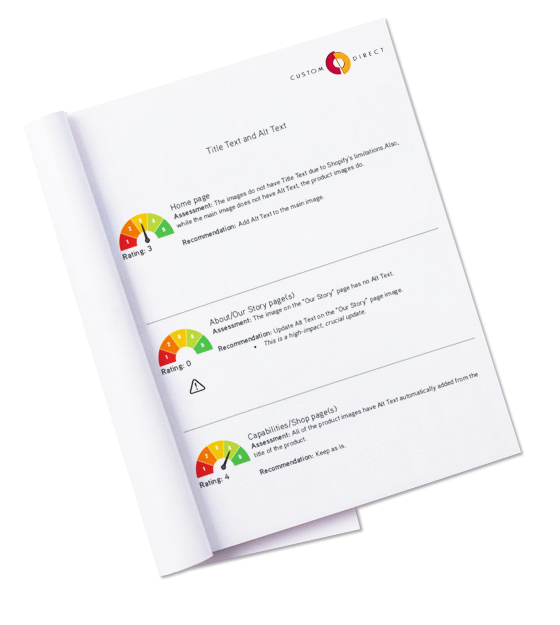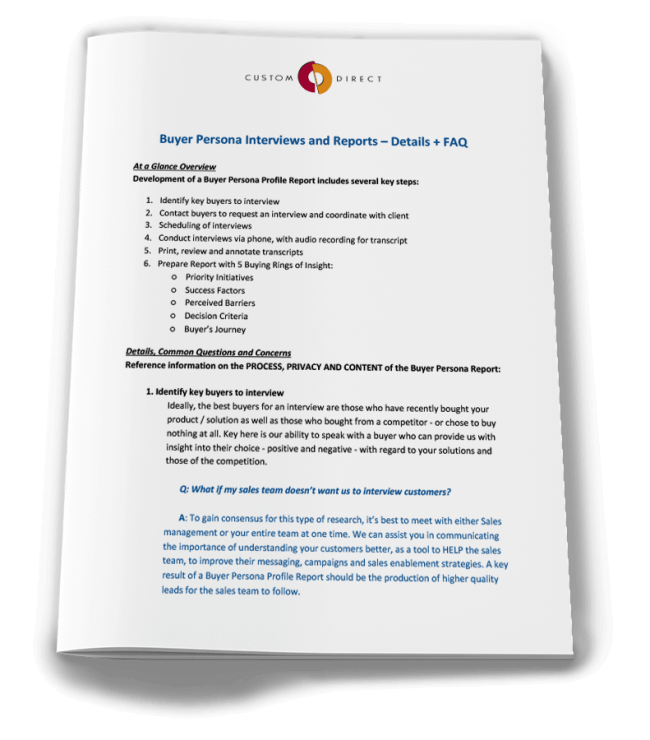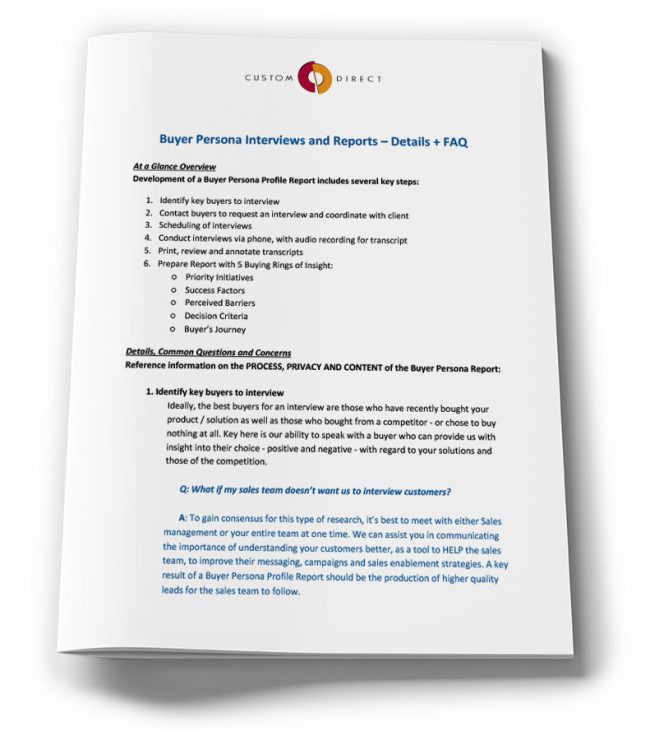Discovery
Make no assumptions and take nothing for granted.
In our process, discovery forms the foundation for future growth, starting with a detailed understanding of your prospects and customers.
As your marketing agency, we have many questions, but not all of the answers.
Yet, our experience and proven processes guide us to uncover insights into your prospects, customers and competitors, to deliver and implement positive outcomes which are often surprising and always actionable.
Don't we already know what our customers want?
Again, make no assumptions and take nothing for granted. The discovery process has been proven to produce insights from customers and prospects, often surprising, which inform your path going forward.
Discovery, as a key component of an effective marketing roadmap generally seeks to uncover these key insights:
- Not the what, but the why. How can you create your WHY story to break through the clutter and truly resonate with your customer so they purchase what you sell? People don't care as much about what you do, but how what you offer can help them.
- People buy from people. It's important to invest in understanding who your prospects and customers are and what their motivations are for purchasing (or NOT purchasing) your solution. Don't guess, ask questions and gather insight.
- Make sure you’re in the ‘right place’. We seek to understand where your best prospects and customers are:
Geographically: to ensure you're able to deliver your products and services without logistical problems.
Channels: whether you sell to or service your customers directly, through dealers or a combination, unique messaging and needs apply to each channel.
Platforms: online, social media, trade shows, industry publications... It's important to define where your clients and prospects are searching for information and solutions to their challenges.
Your Discovery may include any of the following:
Buyer Persona
Essentially, a Buyer Persona is a profile of your target customer. Creating buyer personas helps to refine and align your marketing strategy and tactics around your target customers. Once established, every marketing activity must keep the buyer persona in mind.
Personas help you understand your customers (and prospective customers) better, and make it easier to tailor marketing content to the specific needs, behaviors, and concerns of different buyer groups. The strongest buyer personas are based on market research, as well as on insights we gather from your actual customer base (phone, survey or in-person, dependent upon client availability and location).
At Custom Direct we follow the Buyer Persona Institute’s methodology to deliver an incredibly informative tool, centered around the ‘5 Rings of Buying Insight’:
- Which buyers are receptive, and which will ignore you no matter what you say
- Which aspects of your solution are relevant to them, and which are irrelevant
- Which attitudes prevent your buyers from considering this approach
- Which resources your buyer will trust as they evaluate their options
- Which buyers are involved in this decision and how much sway they have
Key to understanding how to benefit from a Buyer Persona Profile Report is to understand what they are NOT: These are not profiles, which seek to identify individuals through their unique demographic or psychographic traits (age, race, ethnicity, education, hobbies, etc.).
For example: we may interview a customer of yours who is a 40-something Hispanic woman or a 62-year old white male. Narrowing a persona into these demographic ‘buckets’ is not beneficial. And while the Buyer Persona can be a highly effective tool, it is not meant to replace individual relationships, but to serve as a starting point for the conversation...
Buyer's Journey
Understanding the buyer's journey is understanding how to leverage your collateral
Finding the RIGHT TIME for a specific component of sales collateral is based entirely on where your buyer is in their journey - and the RIGHT INFORMATION often aligns with the same:
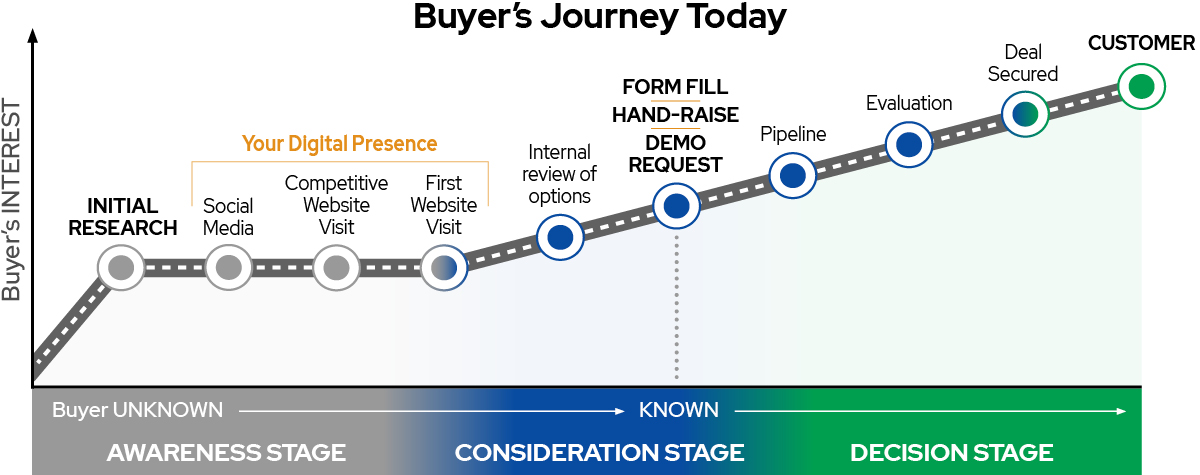
Awareness Stage
The buyer’s first step is to begin ‘educational’ research (a Google search) to better understand their challenge, identify how others might be solving the problem and identify their specific pain points and needs. Sales collateral for this stage helps you to introduce your product or service - and is very often in a digital format, including:
- Detailed blog posts on the subject
- Landing pages on specific subjects
- Organic and paid social media posts
- Infographics
Examples:
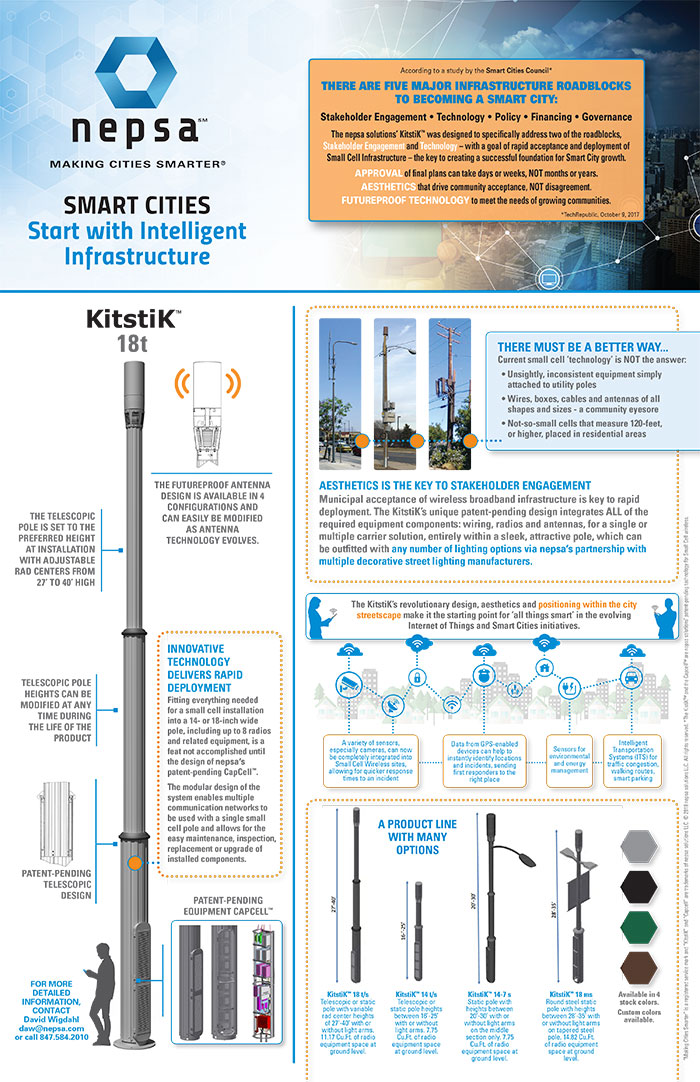
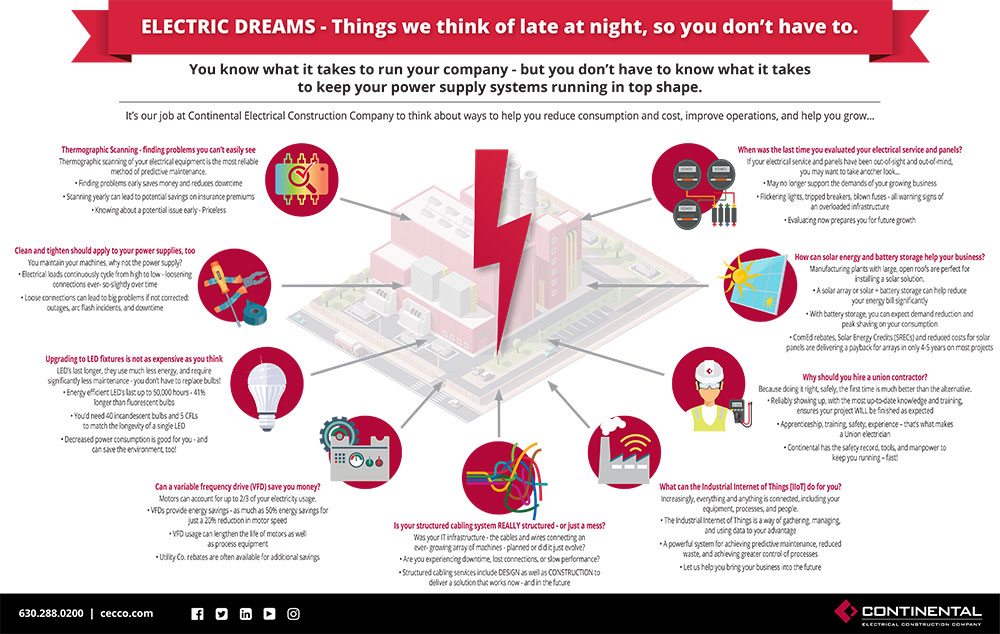
Consideration Stage
Your buyer has clearly identified their problem. They understand WHAT the challenge is and now they’re looking for possible solutions to solve their problem.
Your connection may not be in the form of a direct conversation, yet, but you’ll want to provide collateral that speaks to your overall brand - who your company is and how you can solve their problem. Specific sales collateral can be very effective in this effort:
- Case Studies
- Testimonials
- White papers
- Explainer videos
- Detailed sell sheets with data, images and FAQs
Examples:

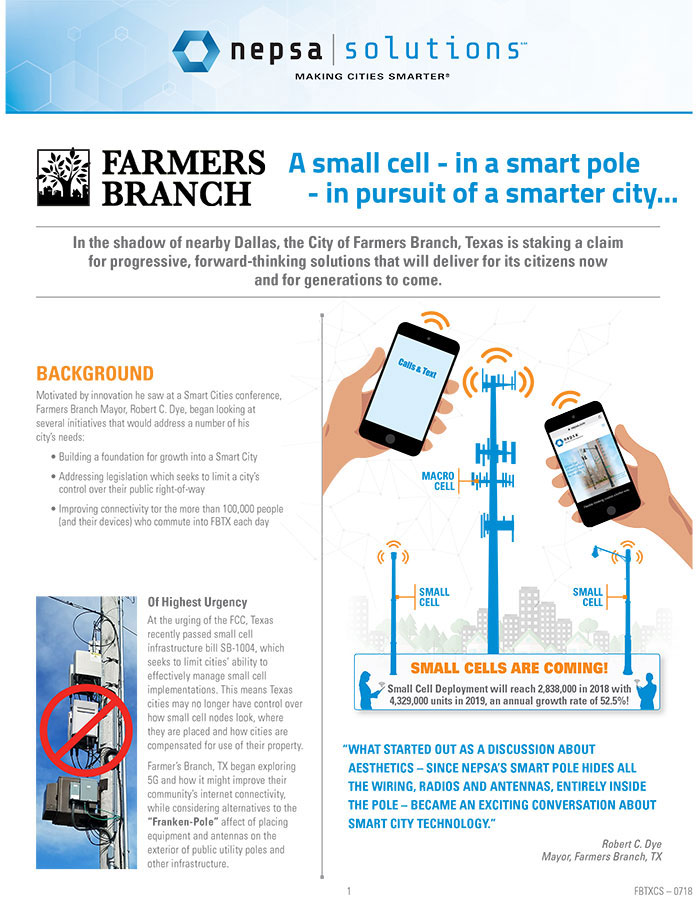
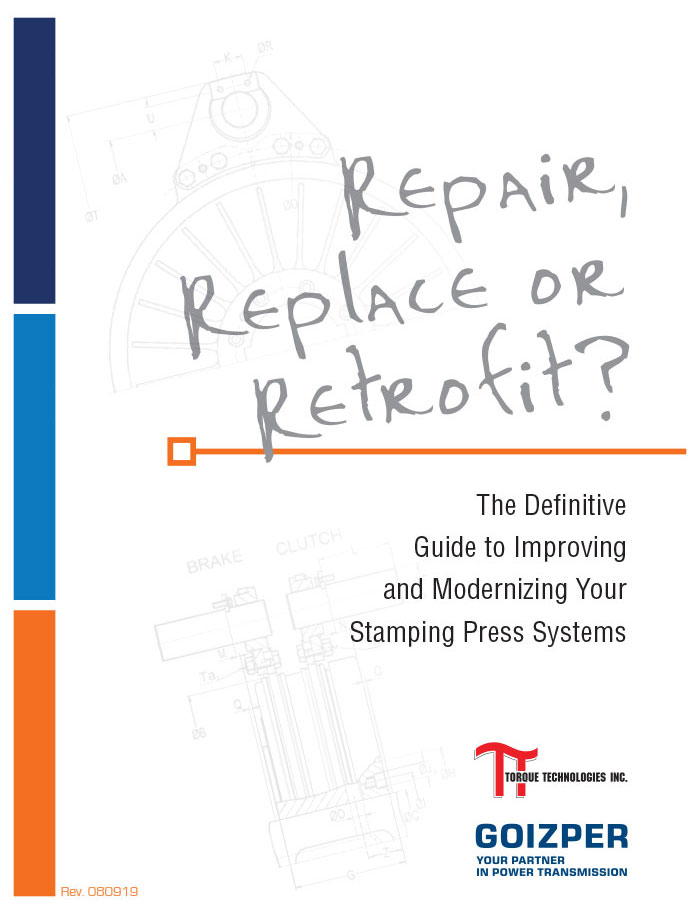
Explainer Video

Decision Stage
Sales collateral used in the decision stage must support the rational AND emotional reasons for a client to choose your solution. Not only will you want to reinforce why your solution is the best choice - but your sales collateral should help to reassure your buyer they are making THE right decision to choose you over your competitors. Develop collateral that clearly supports their decision making process:
- Pricing guides and options
- Competitor comparisons
- Product demos and presentations designed for your specific buyer
- Onboarding tools to create an easier path toward a YES…
Assessments
Assessments are important tools in helping you to determine which challenges and opportunities you should focus your efforts and resources:
- SEO Site Audit
- Competitive Analysis
- Overview and Pre-Development Report
- Jumpstart Your Growth Assessment
An SEO audit, for example, can help you to identify opportunities to boost your website's performance, gain insight into your competitor's marketing strategies, and ultimately make your business more money. Even if you think your website is perfectly healthy, you might be surprised by what an audit can reveal.
Additional audits may include a Competitive Analysis and a review of your Social Media presence and effectiveness (LinkedIn in particular) to uncover opportunities to create and build upon your competitive advantage.
